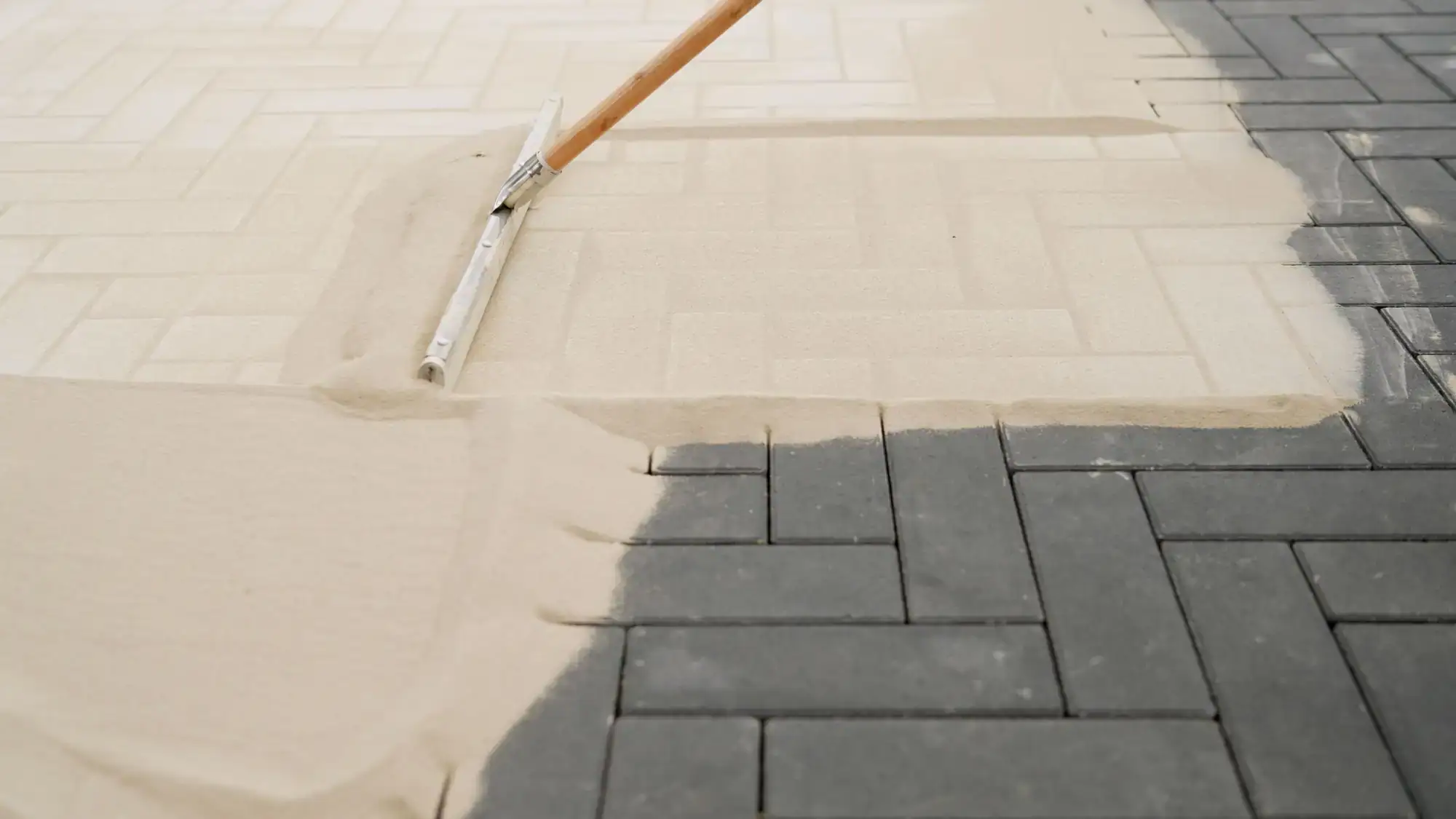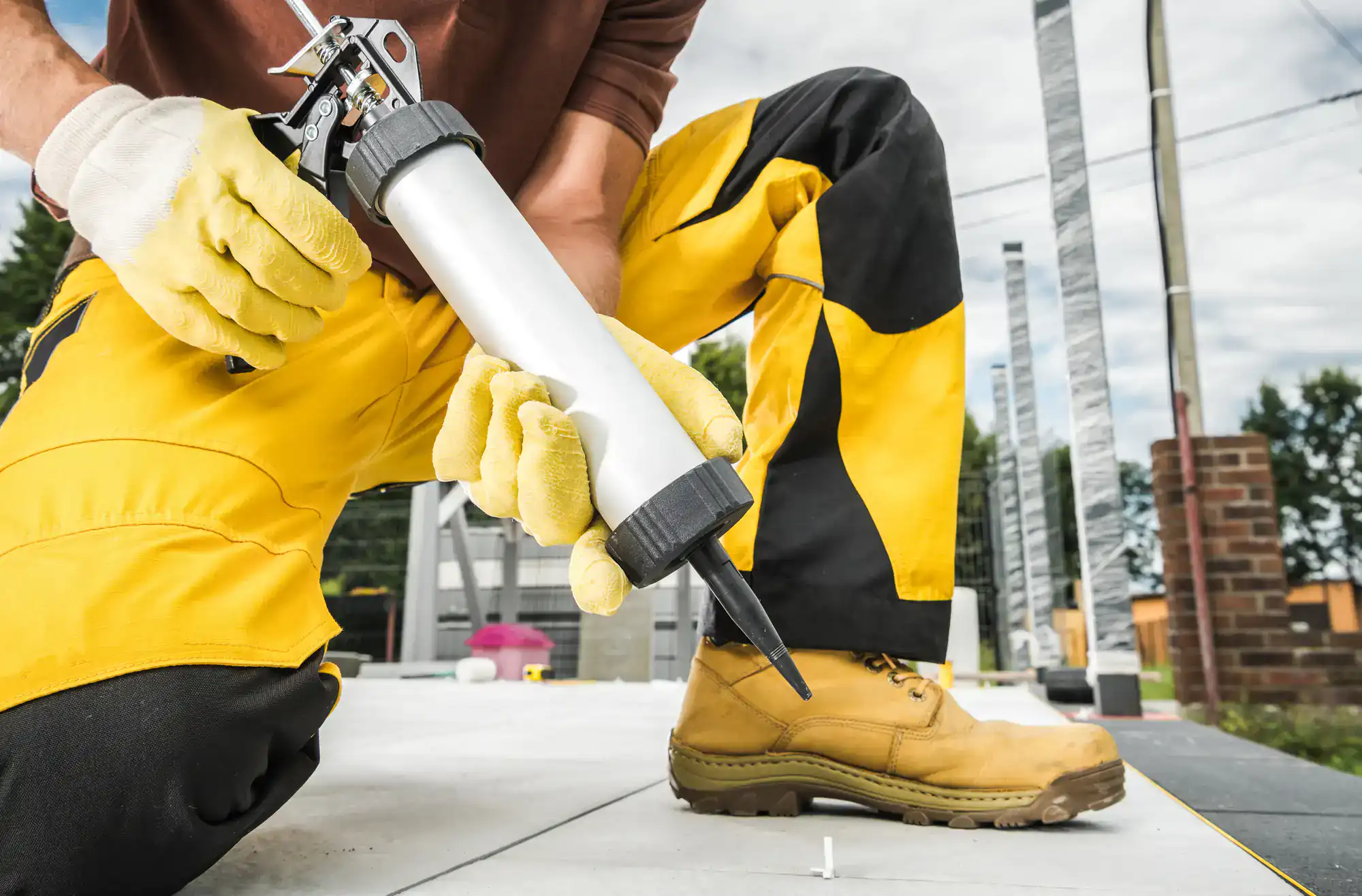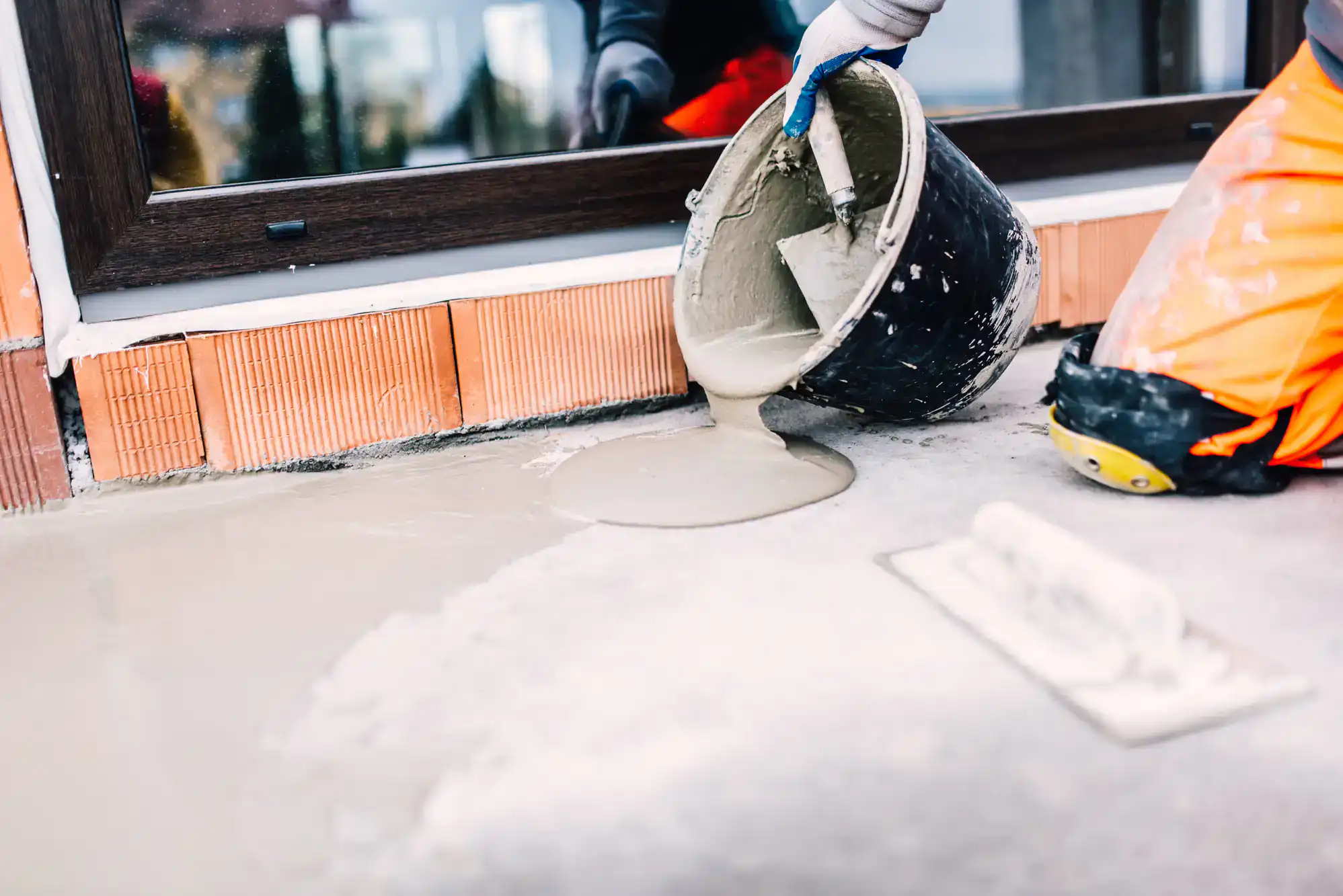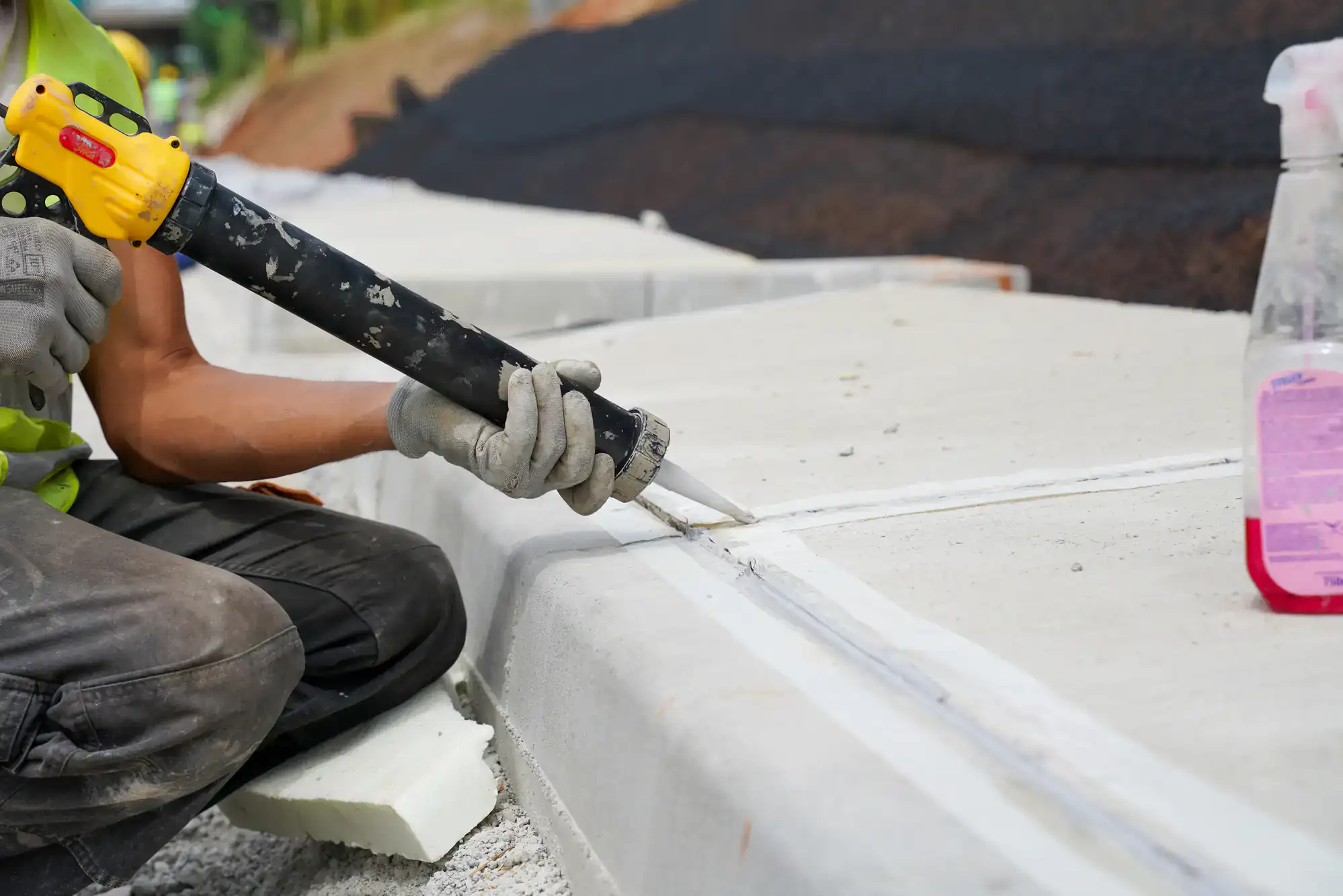Concrete Sealing in Miramar, FL
Moisture-Proof Floors That Actually Last

Hear from Our Customers

Commercial Flooring Contractor Miramar
You’re dealing with more than just concrete—you’re fighting Florida’s relentless humidity, temperature swings, and moisture that can destroy flooring investments overnight. Our concrete sealing creates an impenetrable barrier that stops water vapor transmission before it starts.
Your floors won’t crack, peel, or fail like cheaper alternatives. Instead, you get surfaces that handle daily operations without constant maintenance headaches. No more worrying about mold growth underneath or costly repairs down the road.
The result? Floors that look professional and perform reliably, year after year, even in Miramar’s challenging tropical climate.
Moisture Control Floors Miramar FL
We’ve been solving concrete moisture problems for businesses throughout Miramar and Broward County. We understand exactly what Florida’s climate does to untreated concrete—and more importantly, how to stop it.
Unlike contractors who use generic approaches, we’ve developed systems specifically for South Florida’s unique challenges. High humidity, temperature fluctuations, and seasonal moisture patterns don’t surprise us—we plan for them.
Our local expertise means your project gets done right the first time, with materials and methods proven to work in Miramar’s environment.

Long-lasting Flooring Solutions Miramar
First, we test your concrete’s moisture levels using professional-grade equipment. This isn’t guesswork—we measure vapor transmission rates and identify problem areas before any work begins.
Next, we prepare the surface through proper cleaning and etching when needed. This step determines whether your sealing will bond correctly or fail within months.
Then we apply our moisture mitigation system using penetrating sealers designed for Florida’s climate. These aren’t surface coatings that peel off—they chemically bond with your concrete to create permanent protection.
Finally, we verify the seal’s effectiveness and provide you with maintenance guidelines that keep your floors performing optimally for decades.

Ready to get started?
Flooring Services Miramar Florida
Every concrete sealing project includes comprehensive moisture testing, surface preparation, and application of commercial-grade sealers with antimicrobial protection. You’re not getting a basic paint job—you’re getting engineered moisture control.
In Miramar’s industrial corridors along Pembroke Road and commercial zones near Red Road, we’ve seen what happens when concrete isn’t properly sealed. Humidity levels regularly exceed 75%, creating perfect conditions for coating failures and moisture damage.
Our systems are specifically formulated to handle these conditions. We use fast-curing products that reduce exposure to weather changes and moisture-tolerant primers that bond even when some vapor is present.
The end result is flooring that performs reliably whether you’re operating a warehouse in Miramar Park of Commerce or managing retail space along Miramar Parkway.

How long does concrete sealing last in Florida’s humid climate?
Professional concrete sealing in South Florida typically lasts 15-25 years when properly applied, but this depends entirely on the system used and surface preparation quality. Many contractors use generic sealers that fail within 2-3 years because they can’t handle Florida’s humidity levels.
Our moisture mitigation systems are specifically engineered for tropical climates. We use penetrating sealers that chemically bond with concrete rather than surface coatings that peel off when moisture builds up underneath.
The key difference is proper moisture testing before application. If humidity levels in your concrete exceed industry standards, standard sealers will fail regardless of quality. Our systems work even when vapor is present, which is why they last decades instead of years.
Can you seal concrete that already has moisture problems?
Yes, but only with the right approach and materials. Most contractors avoid moisture-compromised concrete because standard sealers will fail immediately. We specialize in these challenging situations using moisture-tolerant systems designed specifically for problem slabs.
The process starts with identifying whether you’re dealing with surface condensation or groundwater seepage. Surface condensation can be managed with proper sealing and climate control. Groundwater issues require addressing the source before sealing can be effective.
For existing moisture problems, we use specialized primers that bond chemically with damp concrete and advanced sealers that allow controlled vapor transmission while blocking liquid water. This approach solves the moisture problem rather than just covering it up.
What’s the difference between concrete sealing and epoxy coating?
Concrete sealing penetrates into the concrete to create a moisture barrier from within, while epoxy coating forms a protective film on the surface. Both serve different purposes and are often used together for maximum protection.
Sealing is primarily about moisture control—preventing water vapor from moving through your concrete and causing damage to flooring above or creating mold conditions. Epoxy coating provides chemical resistance, durability, and aesthetic appeal on the surface.
In Florida’s climate, proper sealing is essential before any epoxy application. Without moisture control, epoxy coatings will bubble, peel, or delaminate as trapped moisture tries to escape. Our approach combines both technologies for floors that look great and perform reliably long-term.
How do you test concrete moisture levels before sealing?
We use two primary testing methods: calcium chloride testing for surface moisture and relative humidity probe testing for internal moisture levels. Both are essential for determining the right sealing approach for your specific situation.
Calcium chloride testing involves placing sealed containers on your concrete surface for 72 hours, then measuring vapor emission rates. Results above 3-4 pounds per 1,000 square feet indicate moisture levels that require special handling.
RH probe testing provides deeper insights by drilling into slabs and placing sensors at 40% depth to track relative humidity within the concrete structure. This ASTM-standard method reveals internal conditions that surface testing might miss and helps us select the appropriate sealing system.
Why do so many concrete sealing projects fail in South Florida?
Most failures happen because contractors don’t account for Florida’s unique climate challenges. They use generic sealers designed for dry climates and apply them without proper moisture testing or surface preparation.
When relative humidity exceeds 75% during application—which happens frequently in South Florida—standard sealers can’t cure properly. Daily temperature swings of 25°F cause rapid expansion and contraction that breaks bonds between sealer and concrete.
Additionally, many contractors skip the etching process or use inadequate surface preparation. Without proper mechanical bonding, even the best sealers will fail. Our success comes from using climate-specific materials, proper testing protocols, and surface preparation techniques proven to work in tropical conditions.
Can concrete sealing prevent mold growth under flooring?
Absolutely—proper concrete sealing with antimicrobial protection is one of the most effective ways to prevent mold growth under finished flooring. Mold needs moisture to survive, and concrete sealing eliminates the moisture source.
Our sealing systems include antimicrobial additives that actively prevent mold and mildew growth on treated surfaces. This is especially important in Florida where high humidity creates ideal conditions for microbial growth.
The key is using penetrating sealers rather than surface coatings. Surface films can trap moisture underneath, actually creating worse conditions for mold growth. Our penetrating systems allow the concrete to breathe while blocking liquid water transmission, maintaining the proper moisture balance that prevents mold without causing other problems.
Other Services we provide in Miramar





